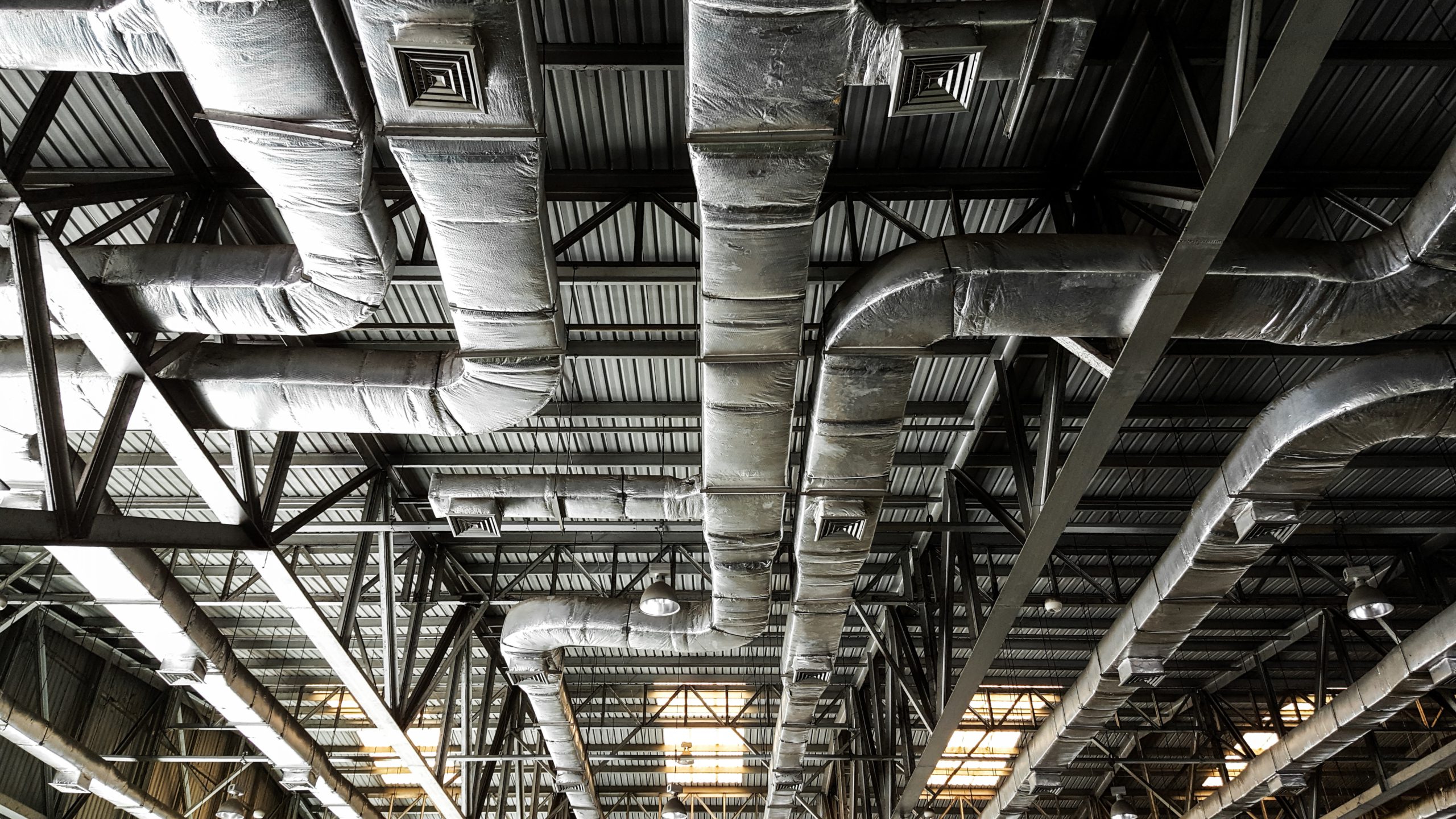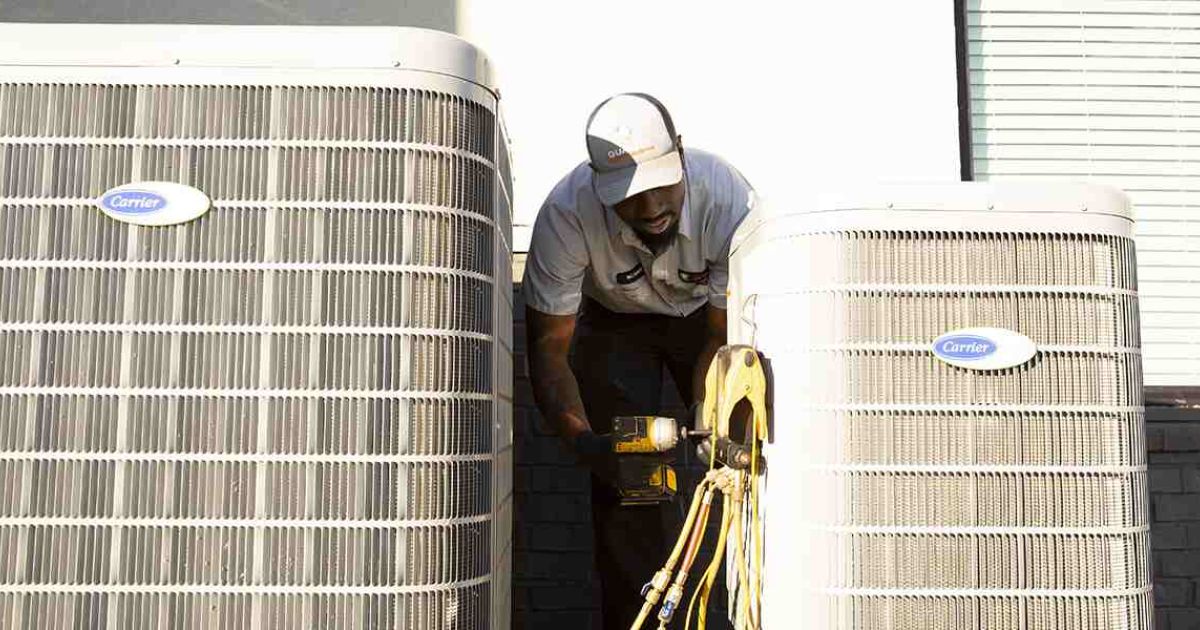An Extensive Consider Heating And Cooling Providers and Their Effect On Power Effectiveness and Expense Cost Savings
The duty of a/c solutions in enhancing energy efficiency and accomplishing expense financial savings is a lot more essential than ever before, as services and property owners seek lasting solutions in an increasingly eco-conscious world. With technical developments like clever thermostats and high-efficiency components, the possibility for enhancing system performance is huge. Yet, truth effect of these technologies depends mainly on regular upkeep and aggressive problem administration. As we discover the complex relationship between cooling and heating systems and functional costs, including the change towards eco-friendly alternatives, the inquiry arises: how can these approaches be successfully applied to maximize both financial and ecological benefits?

Value of HVAC Systems
HVAC systems are a vital component of modern buildings, playing a critical function in preserving comfortable and healthy and balanced interior environments. These systems, encompassing ventilation, air, and heating conditioning, are crucial for managing temperature, moisture, and air high quality, thereby making certain the wellness of owners. Efficient heating and cooling systems contribute significantly to developing an ideal interior climate, which is essential for both industrial and residential rooms.
In business buildings, HVAC systems are important to offering a effective and risk-free environment. By regulating interior climate conditions, these systems assist stop the development of mold and the spread of airborne pollutants, thus guarding the wellness of employees and customers. In addition, in residential settings, heating and cooling systems enhance living problems by providing regular thermal comfort and improving interior air top quality, which is important for total health.
In addition, the style and maintenance of cooling and heating systems have a direct effect on power intake and operational costs. Appropriately designed and maintained systems can considerably lower power use, leading to decreased utility expenses and a smaller carbon impact. The performance of these systems hence plays an essential role in promoting sustainability and energy conservation within buildings, highlighting their relevance in the modern-day architectural landscape.
Developments in Heating And Cooling Technology
Advancement in a/c modern technology is changing the means structures take care of interior environments, introducing a brand-new age of effectiveness and control. Recent improvements have actually focused on optimizing power intake while enhancing user comfort. One notable development is the integration of clever thermostats, which make use of artificial knowledge to find out occupancy patterns and adjust temperatures accordingly, reducing unneeded power usage.
Variable Cooling Agent Circulation (VRF) systems represent one more significant leap ahead. These systems permit precise temperature control in various zones of a structure, improving convenience and reducing power waste. VRF innovation is especially beneficial for huge industrial spaces, supplying versatility and scalability.
Additionally, the advent of Internet of Points (IoT) gadgets has changed cooling and heating systems right into interconnected networks efficient in real-time data collection and evaluation. This connection allows predictive upkeep, making sure systems operate at peak effectiveness and reducing unforeseen downtime.
In addition, improvements in products and layout, such as making use of high-efficiency coils and compressors, have boosted general system efficiency - Heating Contractor. The adoption of environmentally pleasant refrigerants likewise emphasizes the sector's commitment to sustainability
These technical developments are essential in minimizing functional costs and environmental influence, setting brand-new standards for developing environment monitoring.
A/c Maintenance and Efficiency
Making sure optimal performance of a/c systems expands beyond technological improvements; it additionally rests on efficient upkeep practices. Routine upkeep is vital for sustaining effectiveness, lowering energy usage, and expanding the life span of a/c systems. The key objective is to ensure that all elements work at their peak possibility, thereby reducing power wastefulness and maintaining regular interior convenience degrees.
Regular maintenance one hour heating and cooling jobs, such as cleansing or changing air filters, examining cooling agent degrees, and evaluating ductwork for leakages, are essential for avoiding unnecessary strain on the system. Blocked or filthy filters can obstruct airflow, causing the system to work more difficult and take in even more energy. Furthermore, inadequate cooling agent levels can minimize cooling down effectiveness, resulting in higher functional expenses.
Furthermore, periodic inspections by certified experts can determine potential concerns prior to they escalate right into expensive repair work or system failures. These examinations usually consist of inspecting electrical links, calibrating thermostats, and guaranteeing the overall honesty of the cooling and heating system. By addressing small issues early, companies and property owners can avoid unanticipated malfunctions and improve energy efficiency.
Cost-efficient A/c Solutions
For those wanting to obtain the most out of their air flow, home heating, and air conditioning systems without damaging the bank, exploring cost-efficient a/c services can make a significant difference. One prompt step is to spend in programmable thermostats, which enable customers to set certain temperature levels for different times of the day, maximizing energy usage and decreasing unneeded consumption. By automating temperature level modifications, home owners can accomplish significant savings on energy expenses.
Normal upkeep is an additional critical element of affordable cooling and heating management. Guaranteeing that filters are cleaned up or replaced consistently, ductwork is secured, and units are serviced by professionals can protect against pricey fixings and enhance system longevity. Preventative upkeep not just preserves system efficiency but also aids in staying clear of unforeseen malfunctions that can cause pricey emergency repair work.
Additionally, retrofitting existing systems with energy-efficient components, such as variable speed motors or high-efficiency compressors, can be a prudent investment. These upgrades boost functional effectiveness, decrease energy use, and can typically be applied at a portion of the expense of a full system replacement.
Ecological Effect Reduction
Decreasing the environmental impact of heating and cooling systems is crucial in today's pursuit of lasting living. Cooling and heating systems are substantial factors to power intake, making up virtually 40% of power use in commercial buildings. This power need frequently depends on nonrenewable fuel sources, resulting in greenhouse gas emissions and environmental deterioration. Transitioning to a lot more efficient systems, such as those making use of eco-friendly power sources, can substantially minimize these influences.
Technological improvements in cooling and heating layout and procedure, consisting of the assimilation of smart thermostats and energy-efficient heatpump, are critical in minimizing carbon other impacts. These advancements enable for enhanced energy use, lessening wastefulness and boosting total system efficiency. In addition, taking on regular upkeep techniques ensures heating and cooling systems operate at peak efficiency, further curtailing unneeded power usage.
Additionally, the use of eco-friendly refrigerants is essential, as conventional refrigerants, like CFCs and HCFCs, have been eliminated as a result of their ozone-depleting residential properties. Modern choices, such as hydrofluoroolefins (HFOs), offer decreased ecological risks, straightening with find out international environmental methods. By accepting these sustainable methods, heating and cooling services can play a transformative duty in decreasing ecological effects, promoting power effectiveness, and fostering a more sustainable future.
Conclusion

In addition, the design and maintenance of A/c systems have a direct effect on power intake and operational expenses. Routine upkeep is crucial for sustaining effectiveness, reducing energy consumption, and prolonging the life period of Cooling and heating systems. HVAC systems are significant contributors to energy usage, accounting for nearly 40% of energy use in business buildings. In addition, adopting regular maintenance techniques makes certain Cooling and heating systems operate at peak effectiveness, more cutting unnecessary energy intake.
The transition to ecologically friendly A/c systems better promotes and decreases operational prices sustainability. (Heating Contractor)